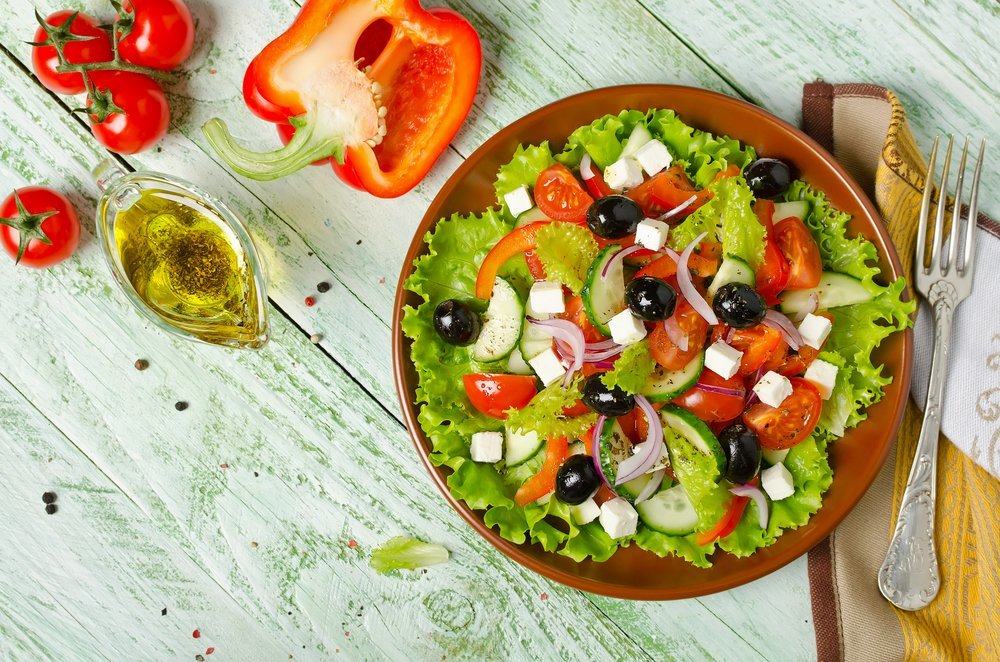Contents:
- Medical Video: Nutrition for Inflammation and Arthritis
- Two important conditions for reducing inflammation yourself
- Tips for reducing weight for people with osteoarthritis
- Foods that can help people with osteoarthritis of the knee
- 1. Vitamin C
- 2. Vitamin D
- 3. Beta carotene
- 4. Omega-3 fatty acids
- 5. Bioflavanoid
- 6. Spicy food
- 7. Olive oil
Medical Video: Nutrition for Inflammation and Arthritis
If you are a person with knee osteoarthritis, there is good news for you. Scientists provide the following food recommendations that can help people with knee osteoarthritis reduce inflammation and pain in the joints.
Actually, there is no specific diet to overcome this health problem. However, if you can carefully choose the food you eat, then it can help you overcome or relieve inflammation in your joints.
Two important conditions for reducing inflammation yourself
The first requirement is to consume foods that contain antioxidants. You need to know that inflammation produces free radicals. Free radicals themselves are molecules that damage cells, which are formed as a result of response to poisons or processes in your body. Your body parts are like the skin, eyes, and include the synovium (a cushion between joints in the knee). Antioxidants themselves are known to protect your body from these free radicals. The antioxidants that have been studied can help overcome arthritis, slow the severity of inflammation, and reduce pain.
The next requirement is controlling weight. Having the ideal body weight is a very important thing to help overcome knee osteoarthritis. Excess fat not only increases the burden on the knee, but fat in the body also triggers the production of hormones and other chemicals that increase inflammatory activity.
Tips for reducing weight for people with osteoarthritis
The following are tips that you can apply to control your weight:
- Reduce food portions
- Don't buy high-calorie food products
- Try eating soup to fill your stomach, especially soup containing vegetables
Another requirement is not to cook meat with too high a temperature. When meat is cooked at too high a temperature, there is a component named advanced glycation end products (AGEs) which causes inflammation in your body.
Foods that can help people with osteoarthritis of the knee
1. Vitamin C
The antioxidants contained in vitamin C can help soft bone growth. Vitamin C deficiency can cause soft bone weakening and increased signs of osteoarthritis. For men, it is recommended to consume foods that contain vitamin C as much as 90 milligrams per day, while for women 75 milligrams per day.
The following foods that contain vitamin C can be your choice:
- Tropical fruits such as papaya, guava and pineapple
- Citrus fruits like oranges
- Blew
- Strawberry
- Kiwi
- Raspberry
- Flower vegetables like cauliflower, broccoli and kale
- Tomato
- Paprika
2. Vitamin D
Indeed, this is each in the further research phase. However, it never hurts to apply this to your diet. Vitamin D can help overcome damaged soft bones and reduce the risk of narrowing of joints.
Here's a list of foods that contain Vitamin D:
- Seafood such as salmon, sardines, shrimp
- Fortified milk
- Egg
- Foods fortified with vitamin D such as orange juice, cereal, tofu, and yogurt
3. Beta carotene
Beta-carotene is also a component that contains antioxidants to help fight free radicals before these free radicals damage your joints. Foods containing beta-carotene are easily distinguished, namely fruits or vegetables that are bright orange, such as carrots. Other foods include:
- Flower vegetables like kale, broccoli, collard greens, and chard
- Sweet potato
- Pumpkin
- Blew
- Lettuce cos
- Spinach
- Apricot
- Peppermint leaves
- Tomato
- Asparagus
4. Omega-3 fatty acids
The healthiest fats that can be consumed by people with osteoarthritis are omega-3 fatty acids. If other fats increase inflammation in the body, omega-3 actually reduces inflammation in the body by suppressing the production of cytokinins and enzymes that damage soft bones. It is recommended, you eat foods that contain omega-3 as much as 85 grams per week.
Foods that contain omega-3 are usually found from foods that come from the sea, such as:
- Salmon
- Sardines
- Herring
- Tuna fish
- Makerel
- Anchovy or bilis fish
- Rainbow trout
- Eggs fortified with omega-3
- Walnuts
5. Bioflavanoid
Types of bioflavanoids such as quercetin and anthocyanidins form antioxidants. The anti-inflammatory effect on quercetin is almost the same as anti-inflammatory drugs such as aspirin and ibuprofen. The following foods that contain quercetin:
- Onion
- Kale
- Broccoli
- Blueberries
- Black currants
- The green
- Cherry tomatoes
- Cocoa powder
- Apricot
- Apples (eat with their skin)
6. Spicy food
Some spicy foods contain anti-inflammatory effects. The most useful spicy foods are ginger and turmeric. Turmeric itself has been studied to suppress the chemicals that cause inflammation. Mix ginger on your food or drink, such as ginger tea, salad dressing, and so on.
7. Olive oil
Research suggests that one component of olive oil, oleocanthal, can help prevent inflammation. The stronger the taste of olive oil, the higher the content of the oleocanthal. 3.5 tablespoons of olive oil equals 200 milligrams of ibuprofen. However, 3.5 tablespoons of olive oil is also equal to 400 calories. Therefore, to avoid excess calories in the body, if you are already using olive oil, do not add extra butter or other oil to your food.
READ ALSO:
- What are the Causes of Joint Pain?
- 8 Food Nutrition That Can Prevent Back Pain
- Recognize the Causes of Pain in the Elbow












